Can You Take Creatine Without Working Out?
Author:
Unlock your full potential by engaging with our experts and community! Have questions about your fitness journey or looking for expert advice on weightlifting techniques? Don’t hesitate — leave a comment below and Jacek Szymanowski will provide a personalized answer and insights to help you reach your goals.
Torokhtiy is reader-supported. Some links are affiliate links, and we may earn a commission at no extra cost to you. See our disclosure page for details.
The vast majority of gym-goers are curious about consuming sports supplements to boost their performance and make their muscles bigger in a short time. So, Creatine is among them, being a magical pill to gain muscles and energy boost along with regular training.
Are you wondering whether you can take creatine without working out? In this guide, we’ll explain the impact of creatine supplement with regular workouts and their absence alike.
Can you take creatine without working out? – Shortly, Yes. But will you benefit from extra supplementation? Then aside from potential brain health benefits it won’t do much for you. You need to know that most benefits of creatine supplementation are related to athletic performance and recovery.

Can You Take Creatine Without Working Out?
Before answering this question, let’s outline the key features of creatine, to understand why it’s so popular among gym-goers, and what you should know before drinking creatine without working out.
If your goal is to build up muscles, you can combine proper weightlifting training, eating enough protein, and adding a creatine supplement to your nutrition plan. The primary goal of creatine is to enhance your performance at the gym and help with recovery.
So, if you want to get benefits of creatine supplementation, consume 3-5 grams daily, arrange a regular workout plan with progressive overload, recover properly and be patient to see positive changes.
However, you should be cautious about choosing the proper creatine form in the murky supplement world. But, there’s nothing to worry about: creatine monohydrate is one of the most studied and observed sports supplements.
Meaning, creatine is a nearly calorie free non-proteinogenic amino acid that occurs in our muscle cells, and is produced mainly in the liver and kidneys. Food sources rich in creatine are mostly red meat and fish.
After you consume creatine supplement, it gets converted inside the muscle cells to creatine phosphate – which is basically a form of stored energy. Your body during high intensity workout can use that stored PCr (thanks to the phosphagen system) to rapidly restore ATP – primary energy “currency”.
This is the reason why creatine might be considered as fuel.
Now, let’s return to the initial question “Can you take creatine without working out?”. Shortly, Yes, it’s impossible – why not :). Creatine can assist with boosting your strength and muscle growth, consequently you’ll gain weight through muscle mass increase.
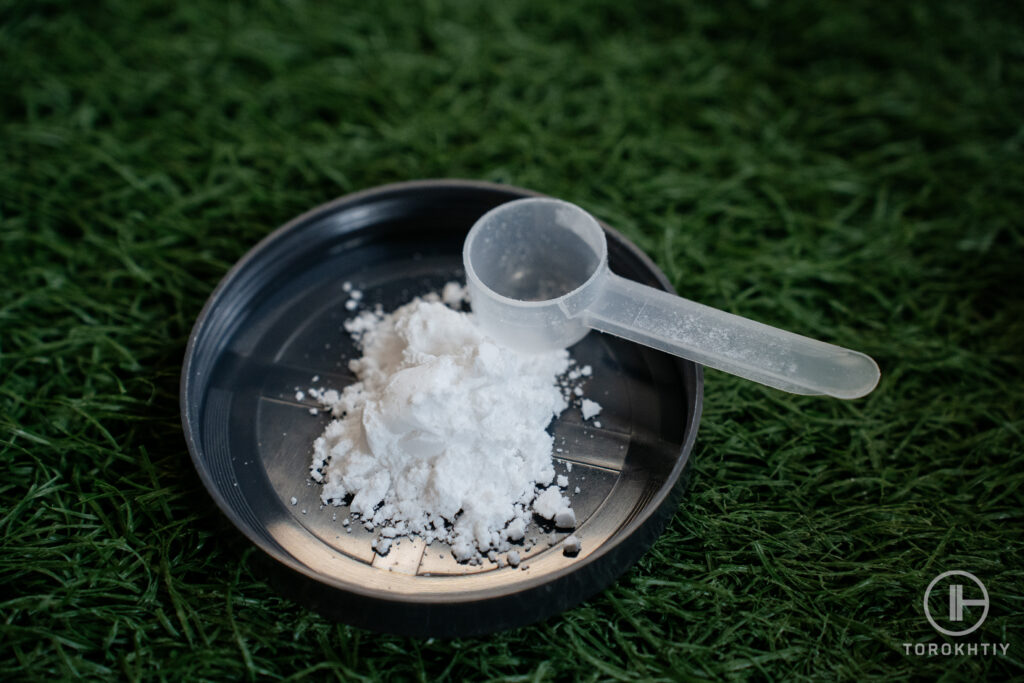
However nothing from above will happen without proper training stimulus, adequate recovery and nutrition. But there are also possible benefits of creatine supplementation not related to the weight room, including brain health improvements and that’s why you can consider taking creatine without working out.
To sum up, if you take creatine without working out, there’s no sense to expect enhanced muscle growth – which must be stimulated properly according to body general adaptation syndrome and also SAID principle that tell us human body adapts to specifically imposed demands.
creatine dosage calculator
Loading Phase:
Maintenance Phase:
Should I Take Creatine On Non-Training Days?
Let’s answer one of the most common questions – ‘should you take creatine on days you don’t workout’? YES! Creatine does not have an acute but cumulative effect – which basically means you need to take creatine consistently to keep your muscle cells saturated and get all of the benefits of supplementation.
3-5g of Creatine Monohydrate a day is your way to go (for bigger folks 0.03g/kg/day) despite is it a training day or not.
What Are Some Non-Sports Related Benefits?
Besides enhancing athletic performance, you might get some of the benefits of taking creatine without working out because for example creatine has demonstrated potential as a therapeutic option for chronic diseases.
These positives may result in improving overall health, helping to recover from injuries, dealing with chronic disease, maintaining mental and functional activity, etc.
Creatine supplementation may improve brain function, namely memory, intellectual performance. It also seems to assist people with neurological diseases as it has the potential to indirectly increase the level of dopamine in the brain.
Studies suggest that creatine may help brain function in people over 60 by improving their short-term memory, reasoning, and preserving neuroprotection. Also, this supplement may help people with cognitive conditions like dementia.
Creatine supplements promise to support heart health as clinical positive effects have been repeatedly reported.
It is possible that creatine supplementation may protect the heart during an ischemic event, thus, creatine supplementation even without training may be beneficial for folks at risk for myocardial ischemia and/or stroke.
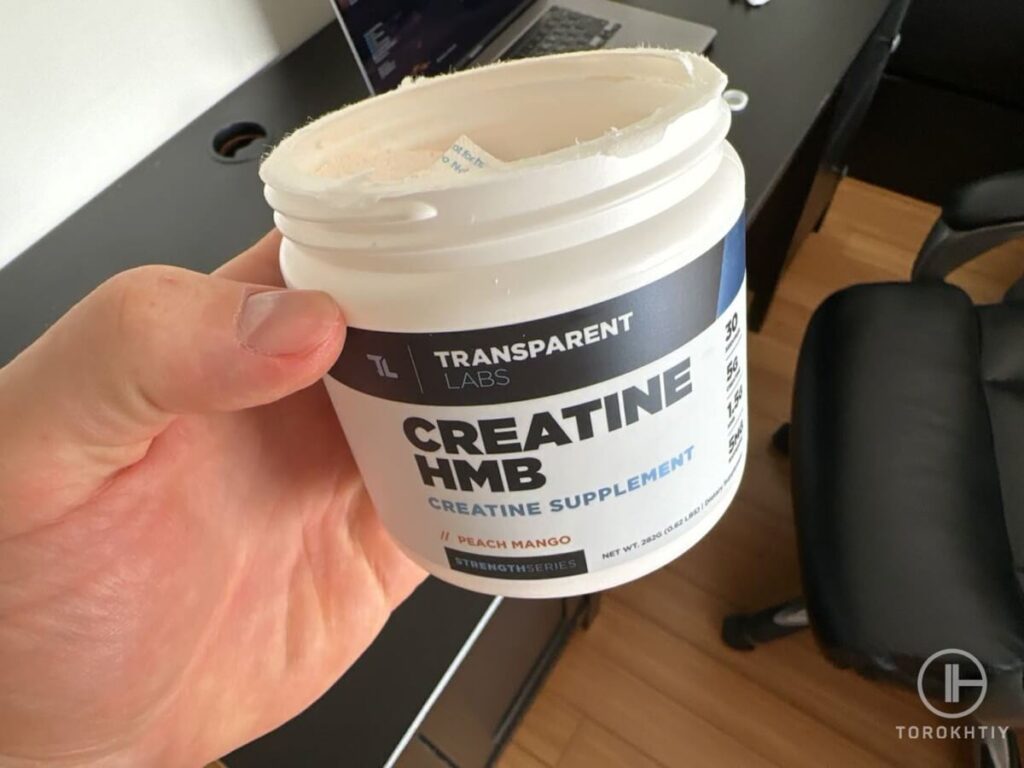
Is It Possible To Gain Muscle Without Training, But Using Creatine?
No it’s not. Muscle growth must be stimulated properly, and fortunately creatine supplementation alone isn’t enough 😉 At the end of the day nothing comes for free and… we all love that grind don’t we?
Turning back to the main issue – does creatine work without working out – yes and no so mind the following point. If you consume creatine, but don’t work out at all, your muscles will take it till full saturation and your body will excrete the rest. Each muscle cell is able to store a specific amount of creatine.
Full saturation means that ingesting more creatine won’t help anymore. Stored energy is available for future use – mainly for high intensity exercise. So aside from non-training benefits it will kind of work…
Imagine getting a bigger gas tank for your car when you actually don’t take longer trips 🙂 fuel is there, you just don’t use it.
The prior study indicated that Creatine supplementation with no training was ineffective for gaining lean body mass. It proved to reveal greater muscle gains when creatine was combined with resistance training.
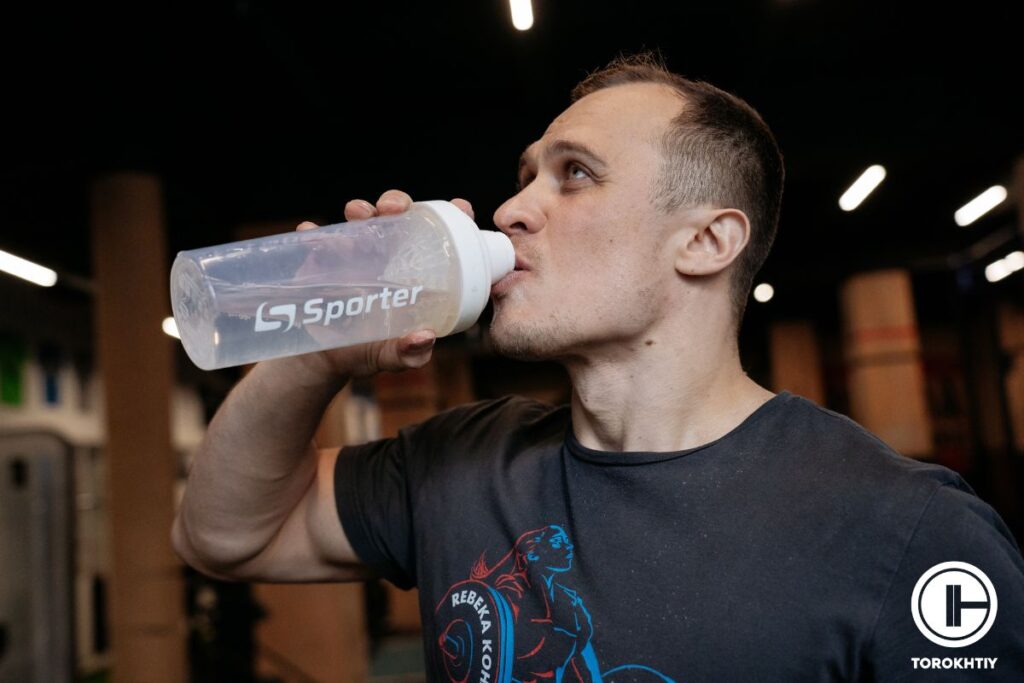
2 Possible Drawbacks Of Taking Creatine Without Working Out
What happens if you take creatine without working out ?
All short and long-term studies in healthy and even diseased populations, in basically all ages, at dosages ranging from 0.3 to 0.8 g/kg/day for up to 5 years have consistently shown that creatine supplementation poses no adverse health risks and may provide a number of health and performance benefits.
Despite creatine being a well-investigated and safe supplement, there may occur some side effects, mostly because of improperly chosen dosage.
❌ Increasing Body Weight
Creatine supplementation may result in increased body weight – in the beginning mostly due the water retention. Especially, if a person takes higher doses, like in the common loading phase – acute weight gain may be bigger.
This weight gain occurred because of the water retention not the increase of body fat. While it’s a good thing for folks who train, for those who don’t – not really that beneficial.
❌ Digestive Issues
You may face some gastrointestinal disorders if consuming high doses of creatine. Try to split the dose throughout the day and consume it with meals.
Transparent Labs Creatine HMB
- Form: Powder
- Type: Monohydrate
- Other Ingredients: HMB, Vitamin D
- Price per Serving (for 5 g): ~$1.35
- Servings per Container (for 5 g): 30 or 60 servings
- Company Founded: 2015
- Recommended by Athletes: Hafþór Júlíus Björnsson, Pat Li, PAULINA
Creatine HMB muscle & strength building formula contains no artificial sweeteners, coloring, preservatives, and is a GMO- and gluten-free supplement.
The combination of Creatine monohydrate and HMB (hydroxymethylbutyrate) promises strength and endurance boost, while decreasing fat deposits, and preserving lean muscles (mostly due to Creatine, not HMB)
The added BioPerine®, the FDA-certified safe piperine supplement, increases bioavailability and absorption, however we need to understand that creatine monohydrate absorption is very high anyway.
The Creatine HMB StrengthSeries supplement includes the following ingredients that will benefit your energy output, workout performance, and gaining quality muscles:
- Creatine Monohydrate – 5,000 mg
Basically perfect dose and form for Creatine supplement. It has already proven its positive impact on strength boost, recovery, injury prevention, muscular endurance and growth along with intensive resistance workouts, and more.
- β-Hydroxy β-Methylbutyrate (HMB) – 1,500 mg
In combination with regular workouts, some say this substance also improves your training performance and assists in getting a lean body. HMB has shown some effects on improving strength and lean body mass when taken alongside resistance training.
(However, plenty of other studies do not support its use as an exercise supplement, making its effectiveness debatable at best. We are sure that you will benefit way more from proper protein intake during a day than from HMB itself.)
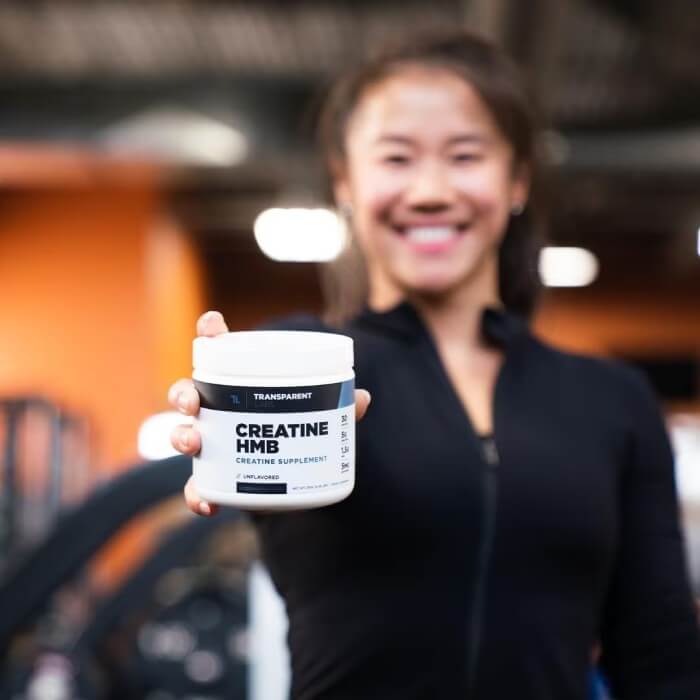
- BioPerine® – 5 mg
Being clinically tested and certified by the FDA, this safe piperine supplement significantly enhances the bioavailability of various supplement nutrients and their better absorption, it also has shown some promise in stabilizing blood sugar levels, decreases inflammation, and boosts brain function.
- Vitamin D – 12.5 mcg (which is 500iu)
It helps to regulate calcium and phosphorus levels in the body, support muscle growth, bone health, improve mental activity and more.
As a dietary supplement a manufacturer advises to consume it 30 minutes after finishing a workout. However, timing in this case actually does not matter. It’s recommended to take one scoop a day.
FAQ
What Happens If You Take Creatine But Don’t Work Out?
If you don’t work out at all then you may experience benefits non related to training, like possible brain and heart health improvements and more.
If we are talking about non-training days – it’s important to take creatine consistently even on non-training days to make sure your baseline levels are elevated so you can get all the benefits creatine has to offer.
Can I Take Creatine Without Exercising?
You can do it, but it won’t give you all the benefits creatine has to offer. As we already mentioned, when you take creatine, you can get an energy and strength boost, while your muscles tend to grow along with productive training.
But, when you consume this supplement and have no workout at all, the energy has no chance to be adequately expended. But, you take creatine for non-sport related benefits.
Is Creatine Good For Non-Bodybuilders?
Yes, this supplement enhances performance, muscle endurance, improves muscle growth, recovery of runners, boxers, footballers, basketballers, cyclists, wrestlers, etc. If we look at all the benefits of Creatine supplementation you will see that it suits every athlete.
DISCLAIMER
While creatine supplementation can offer some non-sport related benefits we talked about, we can’t say this enough – regular exercise is one of the best things you can do to your body and mind. It will give you much greater overall health benefits than all supplements taken together 🙂. Exercise leads to improved cardiovascular health, muscle strength, bone health, mental well-being, and much more.
Conclusion
To sum up, creatine is a superb supplement offering a great bang for the buck if you’re persistent in training. If the question ‘can you take creatine without working out’ matters to you, you need to understand how creatine works and we hope we already helped you with that.
Want to know more about creatine administration while training, or even if you don’t work out? Write to us directly and our certified nutritionists will shed light into your queries.
Also read:
- What Type of Creatine Is Best
- How Many Grams of Creatine Hcl a Day
- How Long Does Creatine Last
- Does Creatine Taste Bad
- Why Does Creatine Make My Stomach Hurt
- Does Creatine Make a Big Difference
- Difference Between Creatine and Glutamine
- L Carnitine or Creatine
- What Happens if You Dry Scoop Creatine
References:
- Alireza Naderi, “Timing, optimal dose and intake duration of dietary supplements with evidence-based use in sports nutrition”, NCBI, https://www.ncbi.nlm.nih.gov/pmc/articles/PMC5545206/ (Accessed Dec 2016).
- Darren G. Candow, “Heads Up for Creatine Supplementation and its Potential Applications for Brain Health and Function”, SpringerLink, https://link.springer.com/article/10.1007/s40279-023-01870-9 (Published: 27 June 2023).
- Aaron J. Cunanan, “The General Adaptation Syndrome: A Foundation for the Concept of Periodization”, SpringerLink, https://link.springer.com/article/10.1007/s40279-017-0855-3 (Published: 06 January 2018).
- Richard B. Kreider, “International Society of Sports Nutrition position stand”, BMC, https://jissn.biomedcentral.com/articles/10.1186/s12970-017-0173-z (Published: 13 June 2017).
- Felipe M. Delpino M.Sc., “Influence of age, sex, and type of exercise on the efficacy of creatine supplementation on lean body mass”, ScienceDirect, https://www.sciencedirect.com/science/article/abs/pii/S0899900722002040 (Accessed December 2022).
- Photos are made by Torokhtiy Media team.
Why Trust Us?
With over 20 years in Olympic weightlifting, strength training, nutrition coaching, and general fitness our team does its best to provide the audience with ultimate support and meet the needs and requirements of advanced athletes and professional lifters, as well as people who strive to open new opportunities and develop their physical capabilities with us.
By trusting the recommendations of our certified experts in coaching, nutrition, and sports training programming, as well as scientific consultants, and physiotherapists, we provide you with thorough, well-considered, and scientifically proven content. All the information given in the articles concerning workout programming, separate exercises, and athletic performance, in general, is based on verified data.
The product testing process is described in more detail here.
Author: Jacek Szymanowski
Certified Nutritionist,
M.Sc.Eng. Biotechnology
Performance Architect,
Strength and Conditioning Specialist
With over 30 years of fighting experience, specialization in nutrition coaching for athletes, and expertise in metabolic health and dietary strategies, Jacek offers a comprehensive approach to optimizing your performance and well-being. Backed by a Master of Science degree in Biotechnology, Jacek remains at the forefront of scientific advancements, ensuring that his coaching is always evidence-based and up-to-date.



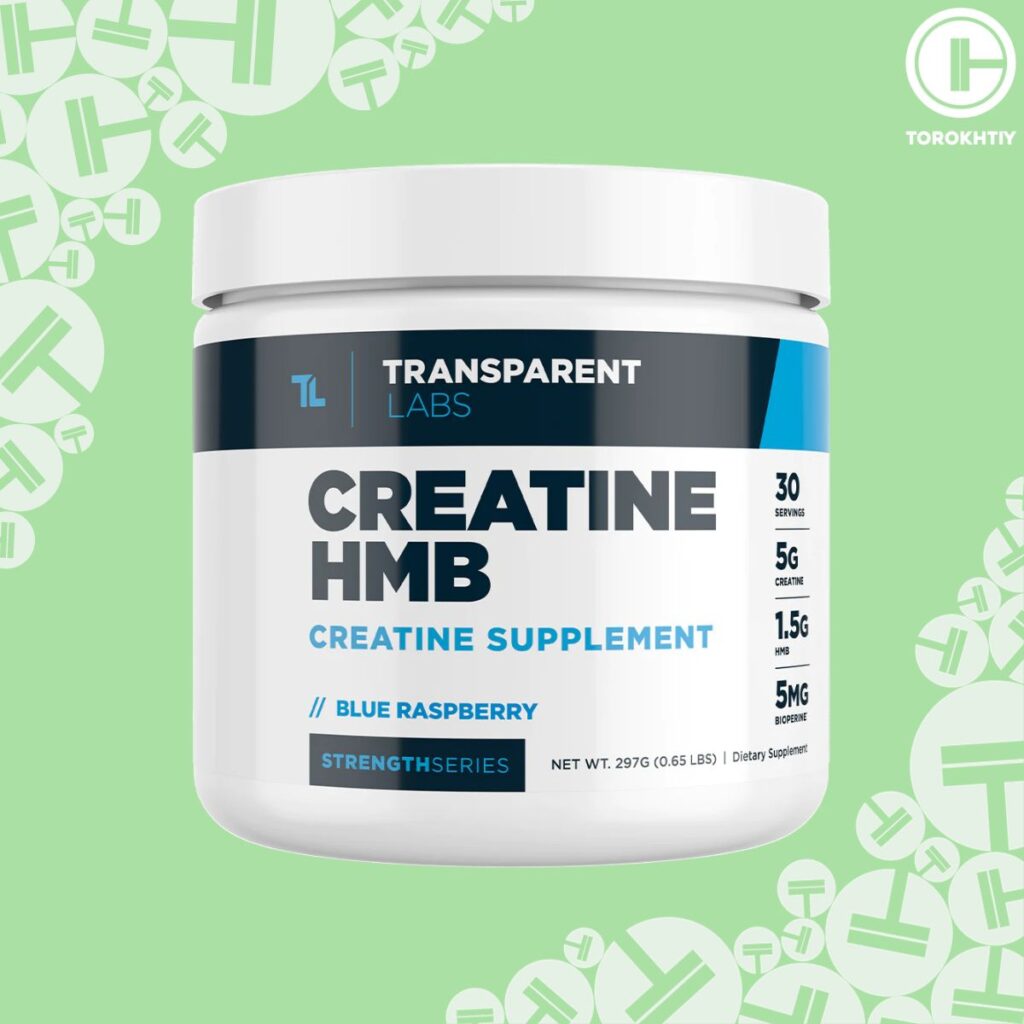
Still have questions after reading our article? Unlock your full potential by engaging with our experts and community! Don’t hesitate — leave a comment below and Jacek Szymanowski will provide a personalized answer and insights to help you reach your goals.